HTML, CSS, and Web Development Practices: Past, Present, and Future
Published on Oct 15, 2009 (updated Feb 5, 2024), filed under development, html, css, maintainability (feed). (Share this on Mastodon or Bluesky?)
This and many other posts are also available as a pretty, well-behaved ebook: On Web Development.
The following is the more detailed alternative version of today’s talk at Teaching the Web, Potsdam. While blog posts occasionally get updated, this one might not.
Contents
- The Ideal World
- The Past (1990-1999)
- The Present (2000-2009)
- The Future (2010-2019)
- Priorities for Web Developers
- Development Practices Compared
The Ideal World
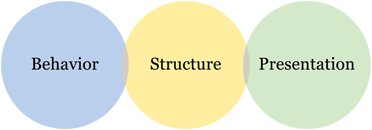
The Past (1990-1999)
Standards
- 1990: HTML 1.0 (Tim Berners-Lee)
- 1994: CHSS (Håkon Wium Lie)
- 1995: SSP (Bert Bos)
- 1995: HTML 2.0 (Tim Berners-Lee, Dan Connolly)
- 1995: HTML 3.0 (Dave Raggett)
- 1996: CSS 1 (Bert Bos, Håkon Wium Lie)
- 1997: HTML 3.2 (Dave Raggett)
- 1997: ECMA-262, edition 1 (Guy L. Steele, Jr.)
- 1998: CSS 2 (Bert Bos, Ian Jacobs, Chris Lilley, Håkon Wium Lie)
- 1998: ECMA-262, edition 2 (Mike Cowlishaw)
- 1999: WCAG 1.0 (Wendy Chisholm, Ian Jacobs, Gregg Vanderheiden)
- 1999: ECMA-262, edition 3 (Mike Cowlishaw)
- 1999: HTML 4.01 (Ian Jacobs, Arnaud Le Hors, Dave Raggett)
Development Practices
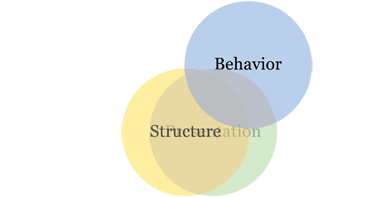
Problems
- Technology limitations
- Lack of features that soon got crucial
- Support limitations
- Implementations incomplete, inconsistent, or not interoperable (proprietary)
- Low output quality
- Inaccessible code
- Unmaintainable code
- Invalid code
- Bad experience
- Little awareness of and few conventions for usability
- Slow performance due to bloated sites and slow connections
The Present (2000-2009)
Standards
- 2000: XHTML 1.0 (Jonny Axelsson, Tantek Çelik, Steven Pemberton, et al.)
- 2001: XHTML 1.1 (Murray Altheim, Shane McCarron)
- 2006: XHTML 2.0 (Jonny Axelsson, Masayasu Ishikawa, Steven Pemberton, et al.)
- 2008: WCAG 2.0 (Ben Caldwell, Michael Cooper, Loretta Guarino Reid, et al.)
Development Practices
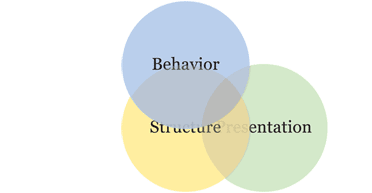
Problems
- Technology limitations
- Lack of features related to web applications
- Support limitations
- Implementations primarily incomplete (see e.g. XHTML, CSS 2)
- Low output quality
- Not fully accessible code
- Unmaintainable code
- Invalid code
- Suboptimal experience
- Not enough awareness of and commitment on usability
- Slow performance due to bloated sites
The Future (2010-2019)
Standards
- 2010? CSS 2.1 (Bert Bos, Tantek Çelik, Ian Hickson, Håkon Wium Lie)
- 2010? ARIA 1.0 (Michael Cooper, James Craig, Lisa Seeman, et al.)
- 2010? ECMA-262, edition 5 (Allen Wirfs-Brock)
- 201…? CSS 3, in its entirety (Daniel Glazman, Ian Hickson, Håkon Wium Lie, et al.)
- 201…? HTML 5 (Ian Hickson)
Development Practices
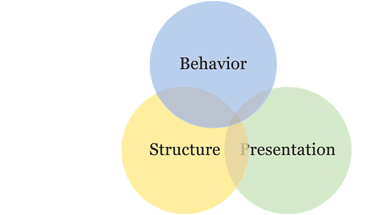
Problems
- Technology limitations
- Support limitations
- Implementations primarily incomplete (HTML 5, CSS 3)
- Low output quality
- Not quite accessible code
- Not quite maintainable code
- Invalid code
- Suboptimal experience
- Not enough awareness of and commitment on usability
- Slow performance due to bloated applications
Priorities for Web Developers
- Commitment to standards (and standardization)
- Emphasis on “non-volatile” best practices
- Appropriate use of technology (semantics, validation)
- Accessibility
- Performance
- Maintainability (separation of concerns)
- Focus on education
Development Practices Compared
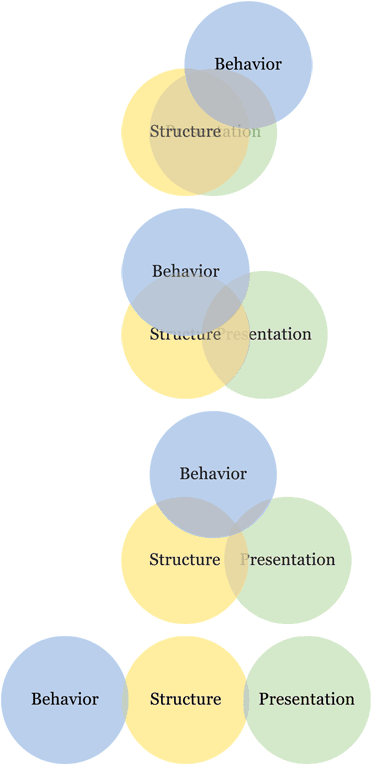
Many thanks to Asim Janjua for his work on the talk’s visuals.
About Me
I’m Jens (long: Jens Oliver Meiert), and I’m a web developer, manager, and author. I’ve been working as a technical lead and engineering manager for companies you’ve never heard of and companies you use every day, I’m an occasional contributor to web standards (like HTML, CSS, WCAG), and I write and review books for O’Reilly and Frontend Dogma.
I love trying things, not only in web development and engineering management, but also in other areas like philosophy. Here on meiert.com I share some of my experiences and views. (I value you being critical, interpreting charitably, and giving feedback.)

